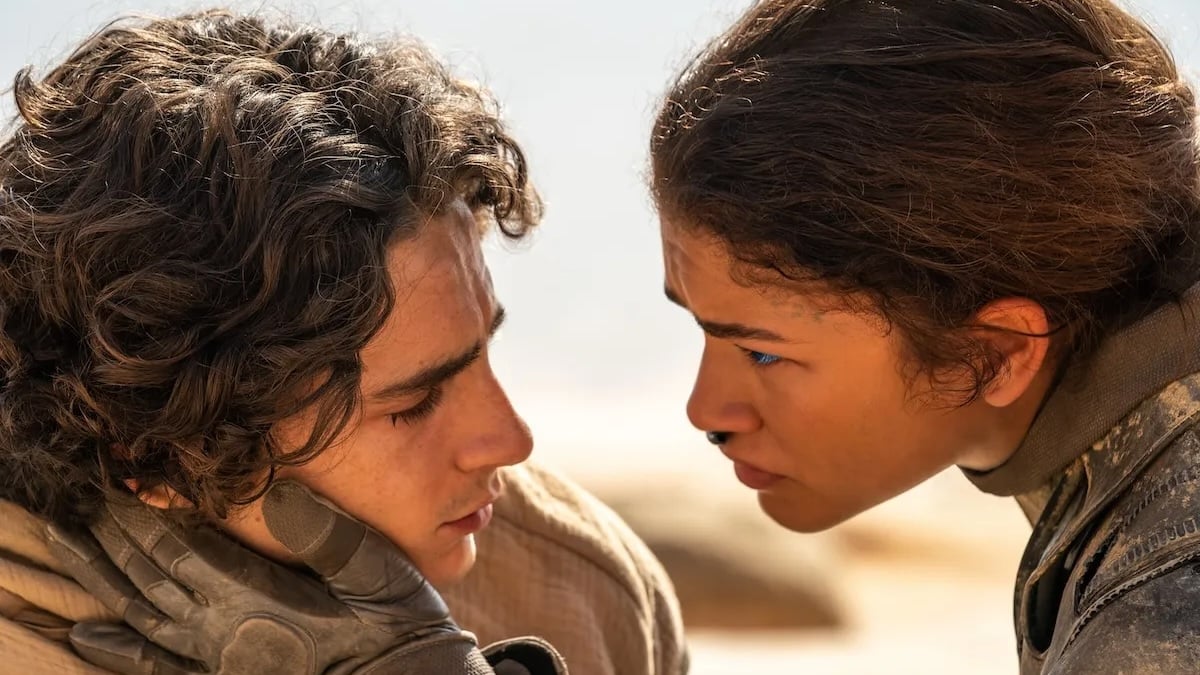The 6th Annual Athena Film Festival, a festival to highlight works by women filmmakers and stories about women, is next week at Barnard. I got a chance to talk on the phone with the founders, Kathryn Kolbert and Melissa Silverstein, about the festival and the importance of representation.
Charline (TMS): I was wondering if you could tell me a bit about the process of making the film festival and how Athena has evolved over the last 6 years?
Kathryn Kolbert: Melissa and I actually were at Gloria Steinem’s to meet with a variety — a dinner that was honoring Jane Campion, a filmmaker, and there were all these women filmmakers in the room who told the same story: that they had great stories, great ideas, made one film, and couldn’t get financing for additional films. I had just started the Athena Center for Leadership Studies here at Barnard, and we thought that creating a showcase for women leadership on screen and honoring women who were filmmakers and successful in the industry would be an important way to advocate for more women in leadership and changing what leadership looks like. I say to people all the time, the goal of the festival is when you close your eyes and you think about a leader, and what a leader looks like, you will, after coming to Athena think of courageous, inspiring and extraordinary women who are changing the world
TMS: What is the selection process for the festival like?
Melissa Silverstein: Well, we have a couple steps, we have multiple selection processes. One’s a submission process and those numbers continue to go up each year. We also have another process because we want to make sure that we’re watching the movies that fit our criteria and so we we ask people to tell us about their film, in order for us to watch it. If it fits our criteria of leadership, then we will watch it. We also get, we spend a lot of time going to film festivals and then we get people suggesting films to us, for us. And we do a lot of research on films festivals [with] women around the world.
Kolbert: Unlike some other film festivals, we show films that are made by both men and women–but they have to have a women as a protagonist of the story in a leadership role, and we define that broadly. Films from all across the globe, and our women leaders, are making change in a whole range … in sports, in religion in, politics, and then in business and in life. In a variety of ways.
TMS: Diversity is a big buzzword now, but when it’s so often divided into just black and white or women and men, how do we incorporate all those intersections into the dialogue?
Kolbert: Well, I run a leadership center and my goal at the center is to advance women to leadership. We are not just doing that because it is the “fair thing to do.” We are doing that because diversity increases the value of an organization, increases the value that movies bring to our culture as a whole. So, we’re doing this because, not just because it’s “fair,” but because it makes better movies, because it gives women who are excluded from view and are too often invisible in the world–we’re giving them an opportunity to see who they could be. And for young people in particular, that’s really important. You have to be able to see yourself in the heroes, in the leaders that are making a difference in the world.
TMS: Tell me a bit about the honors that Athena Film Festival has. How are they selected and what do they strive to do?
Silverstein: We try to look at women in the business who are contributing in a variety of different ways and each year for these awards we want to find a person whose body of work exemplifies leadership on screen and off screen. And this year the winner is, beyond our wildest dreams, Mira Nair, a woman who has told stories on screen, people who are important to the culture, and has integrated foreign films into our lexicon. We’re all mesmerized by her storytelling ability and over time she had become an extremely influential filmmaker. We’re also thrilled she has a movie coming out this summer with Lupita Nyong’o and David Oyelowo, so it’s a great opportunity to honor Mira.
And the other women are just vital voices in the entertainment business. Jeanine Tesori, who is a Barnard grad, she’s the composer of Fun Home the musical, she also composes movies. We thought it was really important. It’s a film festival, but it’s also in New York … Fun Home and what Jeanine and her collaborators have done has really changed the theatre business, has changed how people look at women in theatre. They were the first female duo to collaborate and win a Tony.
Geralyn Dreyfous is a woman who executive produces multiple films each year, like 5 or 6 films, with Impact Partners and also with Gamechanger. She’s really changing the industry and creating opportunities [for] new voices to become integrated in the industry through documentaries and teaching through Gamechanger.
Karyn Kusama is a filmmaker; I’ve been following her for a while, since she came out with Girlfight, and she’s a woman who has a body of work which is also something we want to celebrate, because so few women are able to have a complete body of work. She has a new film, The Invitation, coming out so we want to honor her for that.
Also, Suffragette. So, Suffragette is a movie that emulates all the criteria of the Athena Film Festival, and it’s a film that has gotten a lot of attention over this year raising awareness about voting rights in Britain, and we really wanted to honor the story that it told and bring in the filmmaker, and we’re also honoring the entire group of people in Suffragette which is a completely female-led film. Producers, writers, and director, and so that is a really important thing to note in our culture, because most films are all male-led and we don’t bat an eye, but it’s important for us to note when films are not male-led.
Kolbert: The last person we’re honoring is Paul Feig in our first inaugural male lead award. I think it’s important to note that from the very beginning we have made sure that both men and women-created films, as long as they are telling the story of a woman leader, are included in the festival. By highlighting Paul’s work, I think we really want to say “here’s somebody who has made not only a difference for the women who he’s highlighted in all his films, but has also demonstrated in a very strong way that women are funny. That movies with funny women can make a box office hit.”And, frankly, he has changed the field for women in film. From Melissa McCarthy in Spy, all of these films, plus the new Ghostbusters, which is coming out with women, he’s really demonstrated a whole new genre of filmmaking, and that’s tremendous. We want to thank him for that.
TMS: It does seem like there are certain genres like comedy or science fiction and action that can be more difficult for women to break into or harder to get good roles for. Why do you think that is?
Kolbert: Well, there’s a lot of reasons, but the fact that the people who are handing out the money and who are directing the films are overwhelmingly male and so their vision of what life is is different than what you’ll have when you have an integrated crew and an integrated producer/director and then an integrated film across all functions. So I think, unfortunately, how it’s not different from a lot of other industries across the globe. Women are in leadership in about 18-22% companies and organizations from the private and public sector, so Hollywood’s a little less in terms of their numbers, but the point is it’s difficult for women to break through into leadership and that’s reflected in our culture in a variety of different ways.
TMS: It seem like the Athena Film Festival, while it’s obviously focused in film, extends to all these different fields, like STEM, is that right?
Kolbert: Well, the criteria to be in the festival is the film has to be a story of a woman in leadership, and what we try to do is to show diversity in all different ways. Whether women are in business or sports or international human rights, whatever walk of life they’re in–they’re making a difference in the world and that’s what they’re highlighting.
TMS: So for our readers who aren’t in New York to see The Athena Film Festival, what are some films to look forward to?
Melissa: At the film festival or not at the festival?
TMS: Both!
Melissa: Well, the interesting thing about Athena is that we curate a program, so what people can actually do with a lot of movies is that they can watch along with us, since a good number of them are already available to watch at home or on demand. So, for example you can watch Testament of Youth, you can watch Freeheld, you can watch He Named Me Malala–there’s a variety of our films that people can see. The shorts are things you probably can’t see at home, but what we want people to think about is taking advantage of watching these films in their houses. We’re going have some Q&As streamed, and we’re also going to stream some of our panels, so that’s the festival. We hope people will take the opportunity to watch them at home.
Kolbert: Of course we think it’s a really wonderful festival to come to, but even if they’re not in New York, we’re increasingly attracting audiences from all across the country and other parts of the world. The value in this is that when you spend the whole weekend and you watch these films together, your picture of leadership that you see is very, very different–because it’s one thing to watch one film, but when you have 40 of them back-to-back it’s a real testament to the dynamic difference that women are making in the world. Plus, they can learn to be filmmakers and go to master classes and all kinds of things are going on at the campus. We think it’s a great festival for people to come to.
TMS: Tell me a bit more about the master classes and the panels.
Kolbert: The master classes, we have four of them. Jeanine Tesori, Sheila Nevins, who’s not actually just doing a master class at the festival but two additional ones throughout the year.
Silverstein: And Jeanine, and Joel Fields who’s the showrunner of The Americans — so we feel like we have a variety of different master classes because what we heard from people is they don’t only want to talk about directing or writing, they want to talk about all different areas. And this year for the first time we are doing a lab in conjunction with The Black List, so four writer whose scripts were picked will be mentored by four screenwriters, and that’s a two-day event taking place Thursday and Friday, the 18th and 19th.
The other thing I want to talk about is the Athena List, which is scripts that have female protagonists–strong female protagonists and I know The Mary Sue has a lot of pieces on those–we have scripts with strong female protagonists as leaders that need to be made, because there are not enough film with female leaders released into the pipeline, and also in the pipeline getting ready to get made. Not just fantasy and superheroes, but when you go to the end of the year and you go to the Oscar Race you’re looking to see them. There’s a lot of kinds of people from history, mostly white men, and we need to see more movies with women getting to the end of the season, getting into the Oscar conversation, because that’s also an important part of business.
TMS: What do you think people should take away from the Athena Film Festival?
Kolbert: Our goal for the festival is to change what leadership looks like, and I think when you spend a weekend seeing, watching the stories of resilient and courageous and inspiring women you walk away with a different picture of leadership. Not only inspiring to us, but frankly that’s the way that young people can see who they want to be and then are able aspire to roles in life that make a difference. For me as an educator, that’s critical to changing the aspiration of boys and girls and we want them to know they can be anyone they want to be and to see themselves and to see women in those roles, no longer relegated to inability that has too often accompanied women who are making a difference.
TMS: Since film is obviously a really important medium for both of you, what are some of the most significant movies you feel have influenced you?
Melissa: I always talk about when I first saw Yentl in the ’80s with Barbra Streisand, because I never had any idea that a woman could direct a movie and not only directed, co-wrote it, produced it, starred in it. The moment when the film ended and I saw the credits role and I saw her name everywhere was one of those moments you don’t forget. So I think that’s a hugely influential movie in my standing, which I had no clue at the time. What it means to have–the importance of having women in leadership positions in the industry.
Kolbert: For me, I’m a little older than Melissa so I go back a bit further. But for me it was Katharine Hepburn in movies like The African Queen and The Lion in Winter. Just being that extraordinary strong, courageous woman on the screen who had power in her own right was particularly important for us to see, and I think her activism in the world at large — she was always very outspoken and upfront about women’s equality, women’s reproductive rights, and I think that was really significant for me.
If you’re in New York, pick up a ticket and come say hi! If not, as Melissa says, you can still follow along and check out these great films!
—Please make note of The Mary Sue’s general comment policy.—
Do you follow The Mary Sue on Twitter, Facebook, Tumblr, Pinterest, & Google +?








